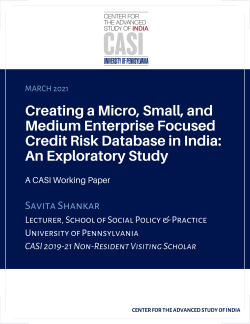Staying with the Struggle: Loving and Laboring in Bombay Cinema

If there is one thing historians can agree was fundamental to shaping the Bombay film industry, it is intense precarity. The commercially powerful and globally-recognized film form that we now call “Bollywood” took its first steps at a time when India was under colonial rule, when no financial institution would touch this uncertain new enterprise, and when very few workers were willing to risk their reputations in a field considered taboo. And yet, in the mid-1930s, Bombay became the site of a dynamic film industry, a cine-ecology with roots spreading in many directions.
Behavioral Voters in a Decentralized Democracy

The Government of India has a proposal of holding the general elections (GEs) with all state assembly elections (AEs) on the same date.
Capturing Institutional Change: Bringing Back Ideas and the State

Until recently, governance processes in India were shrouded in secrecy. A throwback to colonial times, the legal regime was governed by laws such as the Official Secrets Act 1923 (OSA), the Civil Services Conduct Rules (1964), and Sections 1, 2, and 3 of the Indian Evidence Act (1872) and the manual and office procedures of the Government of India. This changed in 2005 with the promulgation of the Right to Information Act (RTIA), which provides Indian citizens a legal right to access government information, a shift from the norm of secrecy to a substantial legal commitment toward openness.


